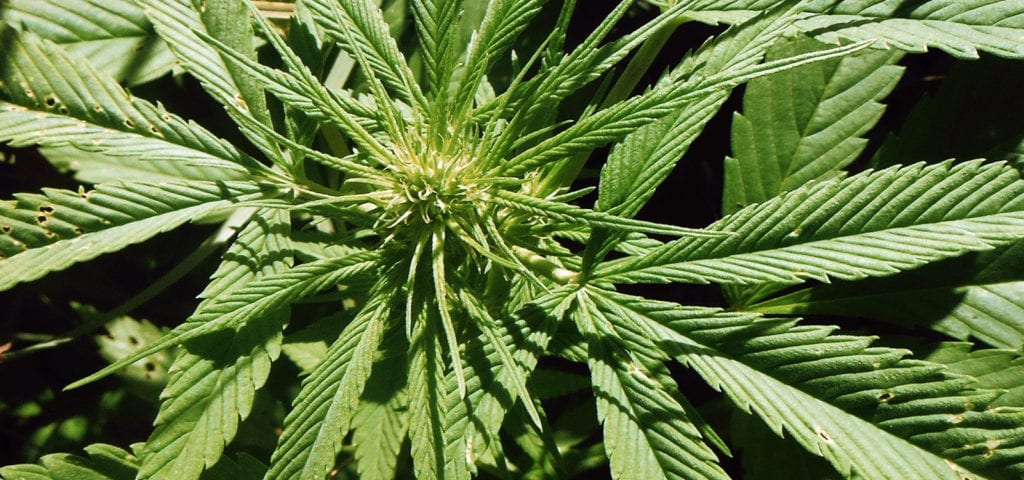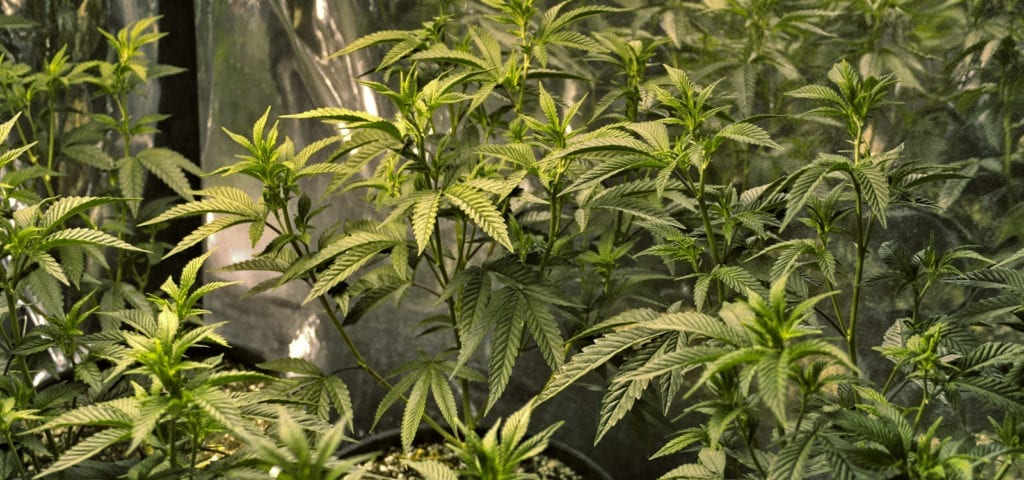Michael Brubeck is the founder and CEO of Centuria Foods and author of Tipping the Scales, a book about cannabis industry financing that helps canna-curious investors identify characteristics of a successful venture.
For this Ganjapreneur.com podcast episode, Michael joined our host TG Branfalt for an interview that covers his early time in the industry — where he encountered the very real threat of federal enforcement and a lengthy prison sentence — to today, where he has grown his company into a multinational and powerhouse provider of high-quality CBD hemp oil. The two also talk about Tipping the Scales, seeking to clarify some of the book’s more controversial points.
You can listen to the interview in full below or scroll further down to read a complete transcript of this week’s Ganjapreneur.com podcast episode.
Listen to the podcast:
Read the transcript:
TG Branfalt: Hey there. I’m your host, TG Branfalt, and you’re listening to the Ganjapreneur.com Podcast, where we try to bring you actionable information and normalize cannabis through the stories of ganjapreneurs, activists, and industry stakeholders. Today I’m joined by Michael Brubeck, he’s the Founder of Centuria, and author of “Tipping The Scales.” A really, really great read. I had the opportunity, it was a quick read, too, which is great. You synthesize everything really well in that book. Congratulations, first of all, for actually publishing something. That’s an incredible accomplishment.
Michael Brubeck: Well, thank you, Tim.
TG Branfalt: Before we get into that book, though, I want to talk about you, get to know you a little bit, get our listeners to get to know you a little bit. What’s your background, my man? How’d you end up in this space?
Michael Brubeck: Well, I started actually in 2005. First walked in to a dispensary owned by a friend of mine in California. By 2006, I was helping him out with his own business, and a handful of other startups and turnarounds inside the industry, primarily retail locations.
By 2007 had spanned the entire state, and then fast forward to 2009 with the Ogden memo, which was when the Obama Administration stated they would not use federal funds to circumvent state laws, and made the pivot out of retail, and into manufacturing/cultivation.
TG Branfalt: So your first company was in the space, that was Delta Allied Growers?
Michael Brubeck: I think technically that was number 14 or 15.
TG Branfalt: When you’re talking 12 years, you get quite a few. But I want to talk to you about Delta Allied Growers. You go into detail about that company in the book. Why don’t you tell the listeners the story of Delta and how that transitioned into Centuria?
Michael Brubeck: Well, in 2009, as soon as the Ogden memo was released, that was the starting point for where I felt there was regulatory structure in which you could have an industrial scale cultivation facility in the United States. As the administration pointed out, as long as you were compliant with state law, then you are compliant with federal policy. So, I exited retail positions and really doubled down on a 44 acre nursery site in California.
TG Branfalt: What ultimately was the … What happened to that company?
Michael Brubeck: Well, it was the opinion of myself and my attorneys that we were clearly in compliance with state law. The Attorney General of California, Kamala Harris, came out in favor of our company, but the Department of Justice and the DEA didn’t quite feel the same way, so they sent us a cease and desist letter at the same time, in 2011, that about eight governors were passing cannabis legislation in their state were getting targeted.
TG Branfalt: At what point did you shut that down, and at what point did you transition to Centuria?
Michael Brubeck: Well, we shut that company down as soon as Ben Wagner, who’s the Regional Attorney General in California, told me that we were probably looking at … I was looking at 20 to life in prison for continuing operations. I met with my advisors shortly after and they said, “Michael, you can continue operating, but the only rule is that you cannot violate US federal law.” So, what we just naturally did was pivoted to outside the US and continued cultivating and operating where we had permits to do so.
TG Branfalt: How did you successfully turn the shutting down of Delta Allied Growers into a positive?
Michael Brubeck: I’m really glad you asked that question, ’cause I can tell you that April of 2011, that was hands down the worst day of my life. It was also the best day of my life. It was the worst day of my life, in that everything I’d worked for in my entire adult life was gone. Just vanished. Every plant that was grown was 35 feet underground, all the personnel that I’d hired were now out of a job. The capital I’d raised had gone also, so that was a pretty daunting moment in my life, but it was hands down the best day of my life, and without that closure, if all things happened perfectly over the last seven years, I’d still be stuck in that small town on 44 acres.
Whereas now, we’re in a handful of different countries, three different continents. We have access to over 13,000 acres in Europe, and over 100,000 acres in Canada, so much happier the way that things turned out this way.
TG Branfalt: And internationally, it’s a far better climate than here in the United States, especially right now. But I’ve got to talk to you about this book, man. Why’d you decide to write it and what’s been the feedback so far?
Michael Brubeck: I decided to write this book because I was getting three to five phone calls every single week from friends and friends of friends that were having questions about PPMs, private placement memorandums, or investment decks that they were getting. Every single person that called me was absolutely clueless.
I kept seeing the same features in every business model. That was that there was this common assumption that the consumer market is going to remain static and the current margins are sustainable, and those are simply not true.
TG Branfalt: What was the feedback when you sat down and you wrote it, and then you sent it off to publishers, and it gets published — did your friends all read it? Did you say, “I’m done answering your calls. Here’s the book, read it, and then we’ll talk?”
Michael Brubeck: That’s definitely something that I lead with now. I think everyone that was on my list of people to talk to about cannabis investments, I definitely gave them some chapters to read. I think the overall feedback has been very positive from investors, and very negative from people that are already operating in the industry for the most part.
TG Branfalt: So you bring up the negative. Let’s just start, let’s get it out of the way. Let’s talk about some of the more unpopular opinions in this book, the potential monopolies, and consolidation. There was one report out of Canada that you were going to see something like 70% consolidation in the nation within 10 years. You talk a lot about companies that are riding high on the hog now, but just can’t scale, potentially them going out of business because they can’t hit these price points.
So, what’s your first reaction when somebody comes to you and says, “Look, this isn’t what’s going to happen,” who challenges these unpopular opinions?
Michael Brubeck: My first thing that I say is some of these things in the book aren’t predictions. I’m not saying that companies are going to develop technology to manufacture cannabis for a penny a gram. Because my company broke that in 2016. Companies already have the technology to do it, and so I think that a lot of my economic predictions actually aren’t really an opinion at all, popular or unpopular.
But I think they’re very commonsensical for people that are outside of the echo chamber of the cannabis industry.
TG Branfalt: So you’re already seeing CannaRoyalty making some moves into California. You’re already starting to see these consolidations. What are you seeing on the ground as legalization‘s starting to make its way through the legislative process? Are you seeing more consolidations, deals, or are you seeing more companies pop up?
Michael Brubeck: We’re actually seeing both. Canada’s a great template for us to … We ask ourselves, “What’s going to happen in California? What’s Colorado going to be like in five years?” I think we look at a federalized market like Canada, the most recent RAND study came out, the potential 8.8 billion dollar market there, which is roughly the size of California.
It gives us a really great map on where this industry’s going. You have three companies that have raised over two and a half billion dollars in the last 24 months, and what are they doing with that money? They’re not investing it in R&D as much as I’d like to see. They’re actually using it to cannibalize smaller companies, and will we see that happen in the United States? Absolutely.
As soon as the chains are removed from Wall Street and the institutional investors, investing directly in cannabis cultivation/manufacturing, and sales, I think there’s going to be a massive consolidation happening very quickly.
TG Branfalt: So in your book, you talk a lot about the importance of research and development, and here in the United States, private companies are the only ones that really can do that in legal states. Federally, it’s almost impossible, and what they do do is ditch weed in Mississippi. So, why do you think that companies aren’t focusing as much on R&D?
Michael Brubeck: Well, the short answer to that is they don’t have to. You still have retail cannabis prices in California, Colorado, even Canada, astronomically high. 200, 300, $350 per ounce. So, at this point, there’s really no need for radical innovation. There’s no pressing need to identify how to first of all, increase your total output by 10x inside of six months, and there’s no need to bring your cost out by 10x or 100x inside any near term window. I think that it’s just invention’s the mother of necessity, I believe.
TG Branfalt: In your book, you also say that automation is king in this industry. You’re proving that with a penny a gram. That’s an insane figure, right? But at the same time, jobs are one of the side effects of legalization. Many activists tout this as one of the reasons that we need legalization, and in your book, you point to providing jobs to a job-starved region. So, what trends do you see in the industry with regard to jobs? What do these jobs become as automation becomes more prolific?
Michael Brubeck: I think a great example that we can look to is the agricultural revolution. You had 93% of the United States working in some form of agriculture, and now, it’s below 3%. I think if we look back at that movement happening, was that a good or a bad thing for the United States? It was absolutely a great thing. So, what does the cannabis revolution that we’re looking at in the next 5 or 10 years mean for this industry and for the consumer?
I think it’s a lot of positive things. I think for the consumer they’re looking at prices going down and quality going up. I think it’s a great thing, especially ’cause I feel that cannabis is far too expensive right now.
I think for cannabis businesses, you’re moving a lot of jobs that were currently done maybe South of the border, maybe somewhere around British Columbia if you know what I mean, and a lot of those jobs are now moving internally to taxable positions where people are getting benefits and pretty good quality of life. So, as this market increases state by state, inside the United States, I think it’s very positive for the industry as a whole.
TG Branfalt: I want to touch base with you a lot more about some of the points you make in your book. But before we do that, we’ve got to take a break. This is the Ganjapreneur.com Podcast, I’m TG Branfalt.
If you are looking for a job in the rapidly growing and highly competitive cannabis industry, Ganjapreneur.com is the place to look. Visit the Ganjapreneur job board today to browse current openings with cannabis companies throughout the United States, from entry level bud tender positions, to executive level career opportunities. You can also create a profile and upload your resume to be discovered by cannabis recruiters. Visit our job boards at jobs.Ganjapreneur.com, to create your profile today.
If you are a business owner, you can post your job openings for as little as $25 on our job board, to reach the largest and most engaged audience of cannabis professionals on the web. Companies who are listed in the Ganjapreneur business directory are eligible for free job listings. If you’re already signed up, contact us today via the website or send us an email at grow@ganjapreneur.com, to activate your unique coupon.
TG Branfalt: Hey welcome back to the Ganjapreneur.com Podcast. I’m your host, TG Branfalt. I’m here with Michael Brubeck, Founder of Centuria, author of “Tipping The Scales.” We’re talking a lot about your book. Perhaps the boldest claim that I think that you make in the book is that 90% of investors are going to lose their cannabis industry investment, so in your opinion, where are those 10% of investments that won’t fail?
Michael Brubeck: The number one indicator that I look for is mechanization of processes. If you look at the average acre of canopy, how many hands do you have touching your plants? If someone comes back to me and says, “Hey, would you like to invest in a one acre, indoor nursery? We’re going to have 200 lights, and we’re going to have 135 employees,” I would consider that likely be a failure, simply due to being a top heavy organization with too much labor.
If someone says, “Well, we’ve developed a method of aquaponics that is highly automated and only requires four people an acre,” that’s something that I would love to get more into. I think it’s the companies that are doing things the old way that are very labor intensive, and they’re also not suitable for very large scale growth, that’s where the highest attrition rate is going to be.
Whereas, I think that people that are creating enterprises that are utilizing technology, using other areas of agriculture, or just new technology in general, inside this industry, are going to be the ones that can grow, grow rapidly, and they can be the easy companies to acquire market shares as interstate commerce opens up.
TG Branfalt: You also point out that small cottage producers, they’re going to have to change their business models due to their inability to scale, the presence of larger cultivators. Do you see a place for craft cannabis in a mature, legal cannabis market?
Michael Brubeck: Yeah, I think that’s like, I think we look at craft beer, we look at wine. We see a place where you’ve got these huge titans of manufacturing that are producing extremely large volumes of their products, and doing very well with their market segment. Then you have very small wineries or craft brewers that are also ultra successful based on their style of manufacturing. The same thing will exist in cannabis. You will see a polarization of I think large scale cultivation and small scale cultivation, but what small scale cultivators have to understand is that consumer pricing is going to be affected by those large scale cultivators.
TG Branfalt: So personally, right, I’m married to terpenes. I mean, my oil, my wax, my flower, that’s what I go for, right? The high is almost, the effect is almost secondary at this point. I’ve been consuming for 16 years or something like that. So, is that one of the ways that these smaller producers will be able to maintain a presence in this mature market?
Michael Brubeck: I think you pointed out a very great fact right there. The reason that you smoke cannabis is unique to you, and a lot of people have that same reason. A lot of different people have different reasons, and each market segment will gravitate to where they find the most value.
I think that the biggest advantage of small scale cultivators, or cottage cultivators, is they can pivot quickly. They understand the market better than any suit in a boardroom, three states away, can never understand. I think that’s going to be the major advantage moving forward for the next decade.
TG Branfalt: You mentioned a suit in a couple of states away. One of the things that you talk about in your book that I thought was really cool was how this industry has the ability to pull talent from non-cannabis industries. Can you tell me about your experience working with people from outside of the sector, and how you’ve built these relationships with these non-cannabis industry types?
Michael Brubeck: Well, ever since 2009 when I focused on manufacturing, the first person I hired was the Head of the Plant Science Department for UC Davis, which as you know, is the largest Plant Science Department in the United States. His specialty was in ornamental horticulture. Couldn’t have been a better fit. Getting that individual to sign on was very, very difficult. He was someone that felt he could be shunned academically for his participation with a marijuana company.
Whereas now, there’s probably monthly meetings at UC Davis about how that department is going to get involved in this industry, all inside of seven years.
TG Branfalt: What other industries are you seeing people coming from? On the podcast I see a lot of people coming from real estate, so what’s your experience as a CEO?
Michael Brubeck: I actually see people coming from every industry. I see people coming from pharmaceutical. I had a great conversation with someone from Genentech last week. I think one of the first California permits that were issued, that was issued to HERBL Distribution, a distributor in California. Well, the owner of that Michael Beaudry, he comes out of UNFI, which is a Fortune 500 company that he was the President of. You have a president of a company that did eight billion dollars last year, creating the same business model that UNFI has, which is about 27 distribution locations nationwide, and 36,000 skews.
His goal for next year is to have 5000 skews. Now, he’s going to be operating at roughly a 6% gross margin, and how does that affect the cannabis industry in California? Every middler that he is displacing, that’s used to maybe a 20% or a 30% margin for driving from the Emerald Circle down to Southern California now is getting edged out by some truck drivers that have a centralized processing facility in Northern California.
TG Branfalt: And so now you’re bringing up this idea that cannabis and you say this in the book, is going to, “Revolutionize every industry that it touches.” Man, what are some of those industries? We know that Scotts is buying up greenhouse and lighting companies, so big business is already recognizing some of the ancillary markets that are going to be revolutionized by the cannabis industry. What do you think some of these industries are going to be?
Michael Brubeck: Well, I think the big ones are intoxicants, so tobacco and alcohol are going to be adversely affected, as we saw in Colorado since we started collecting data after legalization in 2012, that yeah, alcohol consumption went down, nominally. I think if you look at the pharmaceutical industry, the moment that you reschedule cannabis from a Schedule 1 to a Schedule 3 substance, you’re going to see an explosion of new drugs hitting the market, roughly 7-10 years later.
I think that every cannabis consumer is very well aware of the myriad health benefits that each cannabinoid has, and the fact there’s so many cannabinoids that haven’t been isolated and even tested on the human body yet is mind blowing.
TG Branfalt: I want to talk to you about another big claim that you make in this book, but before you do that, we’ve got to take a break. This is Ganjapreneur.com Podcast.
At Ganjapreneur, we have heard from dozens of cannabis business owners who have encountered the issue of cannabis, which is when a mainstream business, whether a landlord, bank, or some other provider of vital business services refuses to do business with them simply because of their association with cannabis. We have even heard stories of businesses being unable to provide health and life insurance to their employees because the insurance providers were too afraid to work with them. We believe that this fear is totally unreasonable, and that cannabis business owners deserve access to the same services and resources that other businesses are afforded, that they should be able to hire consultation to help them follow the letter of the law in their business endeavors, and that they should be able to provide employee benefits without needing to compromise on the quality of coverage they can offer.
This is why we created the Ganjapreneur.com business service directory, a resource for cannabis professionals to find and connect with service providers who are cannabis friendly, and who are actively seeking cannabis industry clients. If you are considering hiring a business consultant, lawyer, accountant, web designer, or any other ancillary service for your business, go to Ganjapreneur.com/businesses, to browse hundreds of agencies, firms, and organizations who support cannabis legalization and who want to help you grow your business. With so many options to choose from in each service category, you will be able to browse company profiles and do research on multiple companies in advance, so you can find the provider who is the best fit for your particular need. Our business service directory is intended to be a useful and well-maintained resource which is why we individually vet each listing that is submitted.
If you are a business service provider who wants to work with cannabis clients, you may be a good fit for our service directory. Go to Ganjapreneur.com/businesses to create your profile and start connecting with cannabis entrepreneurs today.
TG Branfalt: Hey welcome back to the Ganjapreneur.com Podcast. I’m your host, TG Branfalt. I’m here with Michael Brubeck, the Founder of Centuria, author of “Tipping The Scales.” So, in your book, you say when regulation falls, free market reigns. That statement assumes that in the US it will be descheduled, not rescheduled, which would likely put it in the hands, cannabis in the hands of Big Pharma and Big Ag. Even in Canada, we are seeing state control, provincial control. The liquor board’s going to be running everything from distribution to sales.
In Uruguay, they only allow two products, no marketing, strict controls, fingerprints. This isn’t a free market. The legal cannabis industry in the United States isn’t a free market, Canada’s proposal isn’t a free market. Do you think the industry will get to that free market status? And by then, won’t the market already be cornered by monopolies which again, impedes the free market? I mean, I know it’s a very loaded thought here, but how do we say that regulation falls, free market reigns, but then we regulate the hell of it?
Michael Brubeck: Well, I think we’re definitely dipping a toe in the water with regulations. I think you saw the infighting amongst canopy sites in California. In Canada, as legalization comes this summer, I think that’s going to be one of the biggest tipping points we’ve probably seen in the history of this industry. With one of the major industrialized nations in the world, member of the United Nations, going against the single convention on narcotics, and legalizing cannabis for recreational use, I think we’re going to see a lot of interesting business models pop up in that country.
Then, I think the next step that the US is going to see, and I think a lot of it has to do with what’s happening in Canada, is that we should see state’s rights be recognized regarding both medical and recreational cannabis. Now, the next step after that is potentially for interstate commerce, and then for international imports to be allowed under the commerce clause.
So, if we’re talking about that all happening in three to five years, now you have Canadian companies that are very well funded, that are extremely efficient large scale, being able to export to distributors in California and Colorado, and a handful of other states. I think that you’re going to see US regulators see that US market share is getting eroded by foreign imports. So, what will that prompt the United States to do? It’s my belief that we’ll see an opening or a loosening of regulations.
TG Branfalt: So you’ve said a couple of times, three to five years. We’re edging in on 2018, so you think that we’ll see a significant policy change in the United States by 2021 to 2023?
Michael Brubeck: I think when you look at something as simple as 280E, I think we’re less than a year away from seeing that fall. That to me is an extremely significant change at the federal level. To get the IRS to recognize that businesses in these legal states should be able to write off legitimate expenses for operating their cannabis business is a huge first step. So, going from that to rescheduling, I think yes we are inside of 3-5 years.
TG Branfalt: So one of my concerns, honestly, with the US, is that they’re not going to deschedule, that they’re going to reschedule. If they reschedule, it’s likely going to put cannabis in the hands of Big Pharma and Big Ag. Are you concerned about that as well? Or am I just being paranoid, big government, 1984, big brother is watching us?
Michael Brubeck: Well, the biggest advantage to a rescheduling of cannabis is it removes the federal government’s ability, like our Attorney General right now I think is a bit frightening to some people in the business, but it removes their ability to put … Cannabis operators are following state laws and regulations, in jail for 5 to 20 years, and I think removing that is massive. I think removing … penalties for possessions or for possession of cannabis in general needs to be eliminated.
TG Branfalt: Does it worry you as an operator, the potential of the US government playing crony capitalism with this industry? Because they’re allowing on one hand, they’re allowing companies to … The FDA is allowing synthesized THC products, fast-tracking them, but on the other side, they’re threatening crackdowns. Is there a concern from you, who seems to have a pretty good finger on the pulse, that the government could just play crony capitalism with this, license just a bunch of their friends, and not allow small producers or independent producers into this industry?
Michael Brubeck: I don’t think you can put the genie back in the bottle. I mean, that’s the one problem the federal government would have if they tried to play out that scenario. Can you close the 2800 businesses in Colorado because three pharmaceutical companies now have the patent on specific classifications of cannabis or cannabis processing? I just don’t ever see that happening.
Do I see that pharmaceutical industries are going to have a much larger footprint with cannabis based products? Absolutely. Is that a bad thing for the cannabis industry? I don’t think so. The reason I’ve remained sane in the last 12-13 years in this business, is I really don’t try and speculate. I definitely look at very near term happenings inside the industry, both regionally and nationally. Not just the United States, but other countries. And then strategize accordingly for those changes that are about to occur.
TG Branfalt: So with all this being said, what advice do you have for entrepreneurs considering entering this space?
Michael Brubeck: If you currently aren’t operating a business inside the cannabis space, do not try and recreate something that someone else is already doing really well. Yeah, you may be an incredible chocolatier, but for you to go out and purchase let’s say trim or a base ingredient in oil, from a wholesaler, and then use that ingredient in creating your chocolates. If THC or cannabinoids are 65% of your product costs, you’re competing against every other individual in the marketplace, so do you have a competitive edge in that space? Absolutely not. You’re playing catch up with companies that are more experienced, that are better capitalized than you, so just don’t do it.
Same thing when I hear about growers that are trying to raise six million dollars for a 10,000 square foot indoor nursery in California. I think it’s an absurd thing to do. If you’re spending money on electricity to create photosynthetic activity in your plants, you’re missing the bigger picture here.
So, focus your resources, both time and money, on things that are going to be valuable in three to five years, that you may not be able to be profitable inside of two or three years. So, business models could be people that start building greenhouses and collectivizing indoor nurseries to pivot into greenhouse spaces. I think that’s going to be one of the biggest areas of growth for investors and business owners.
By coordinating collectivization efforts, by getting 10 growers or 20 growers in the same place, if that pays your rent as a cultivator yourself, that’s a smarter way to approach I think, entering as a cultivator, as a product manufacturer.
TG Branfalt: That’s really interesting, the idea that collectives of sorts are the model that you see as attractive. So, when you sent me this book, in the front cover you write, “I hope you learn something.” I definitely did. I think that people who are turned off by the book, as you said, are probably going to be current operators, but as somebody who covers this industry … I really appreciate the honesty that’s in the book. You go through your own journey as well as the journey of your companies, so where can people find out more about you, buy the book?
Michael Brubeck: Well, you can find the book on Amazon, both in paperback and Kindle format.
TG Branfalt: And where can they learn more about you and Centuria?
Michael Brubeck: You can go on our website, CenturiaFoods.com, to learn more about myself and the company.
TG Branfalt: Well, I want to thank you for being on the show. I hope you write another book, honestly, because it’s very succinct. It’s very well written. It’s an easy read and I think that if people pick it up and they can immerse themselves in it and really get some expert opinion.
Michael Brubeck: Well, thank you, Tim. I’m actually already starting on it, and it’s actually focusing on historical market consolidation in other industries, and how they historically affected companies inside those industries, and then how that correlates to the cannabis industry moving forward.
TG Branfalt: Well, I reckon that after you’re done with that, we’ll have to have another conversation, huh?
Michael Brubeck: Yeah, looking forward to it.
TG Branfalt: You can find more episodes of the Ganjapreneur.com Podcast in the podcast section of Ganjapreneur.com, and in the Apple iTunes Store. On the Ganjapreneur.com you will find the latest cannabis news and cannabis jobs, updated daily, along with transcripts of this podcast. You can also download the Ganjapreneur.com app in iTunes and Google Play. This episode was engineered by Trim Media House. I’ve been your host, TG Branfalt.




























